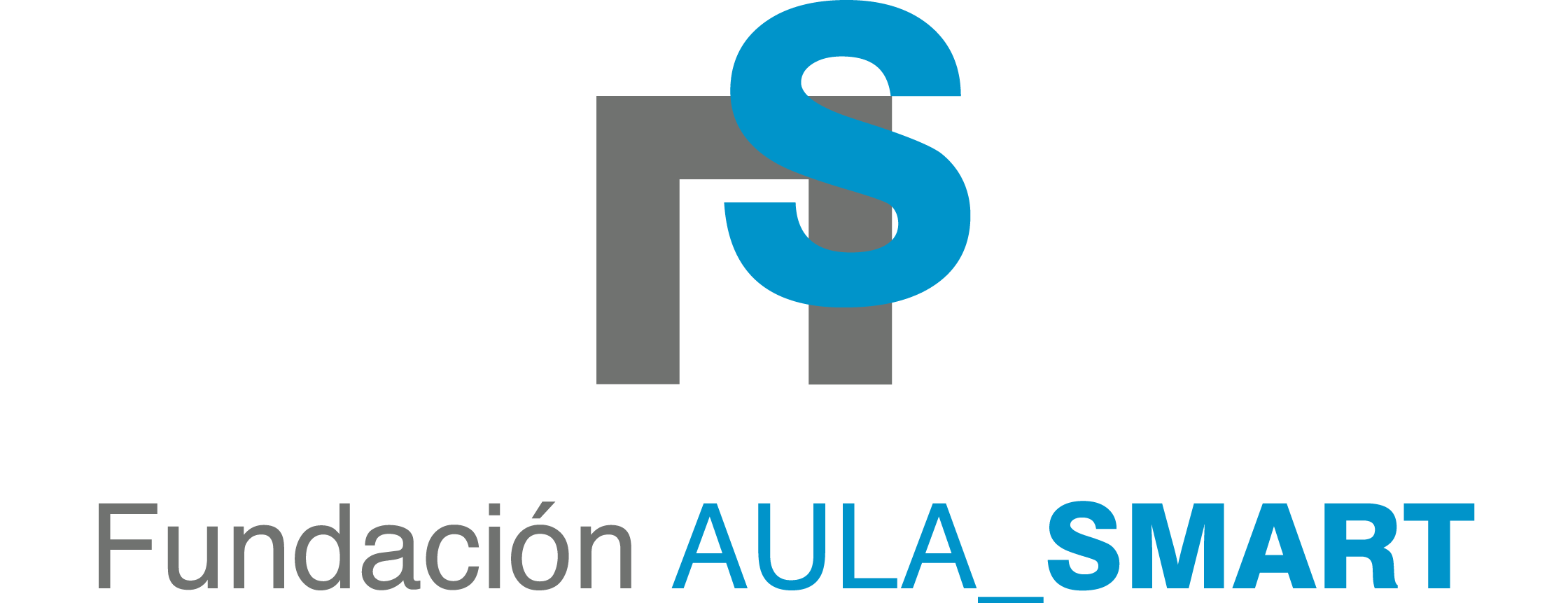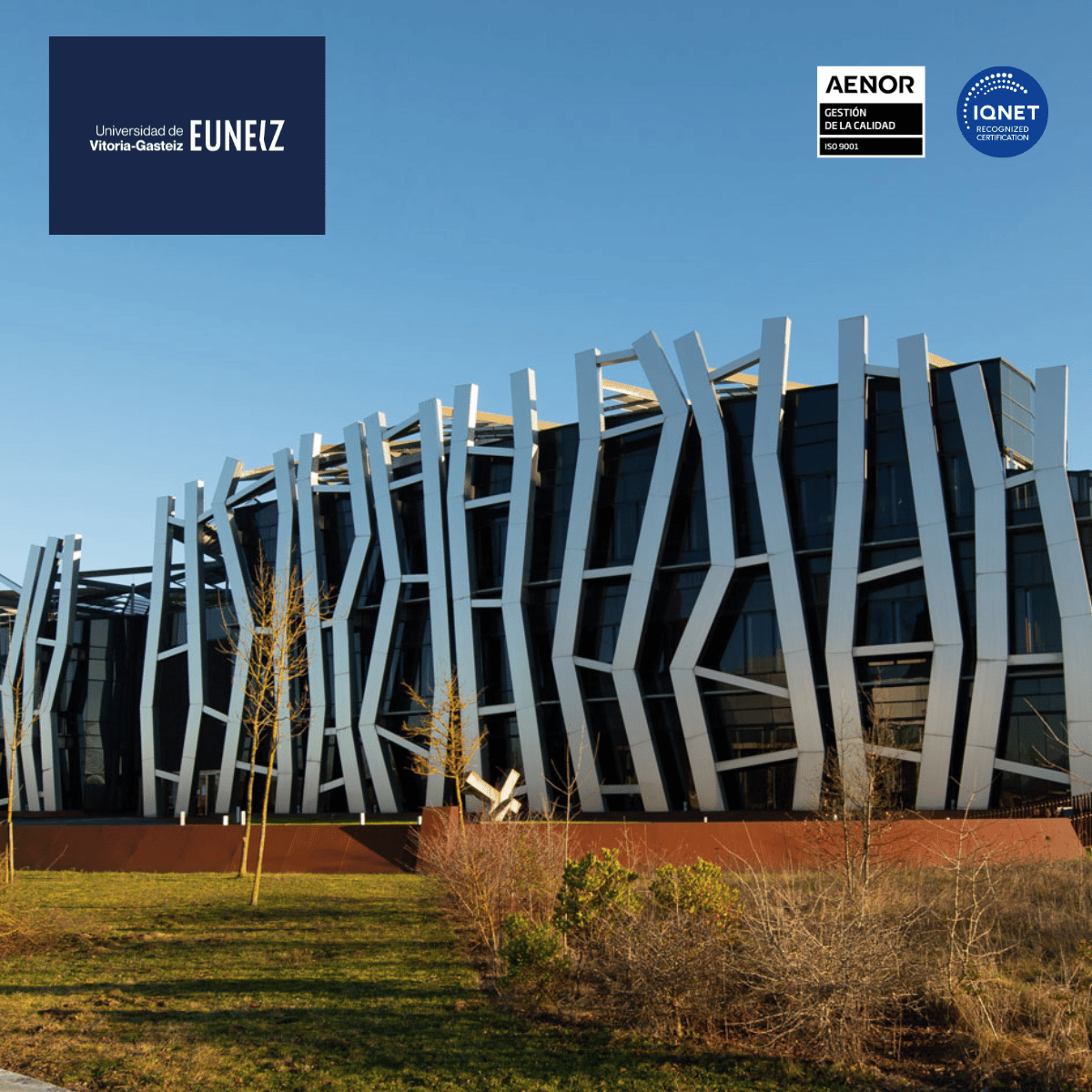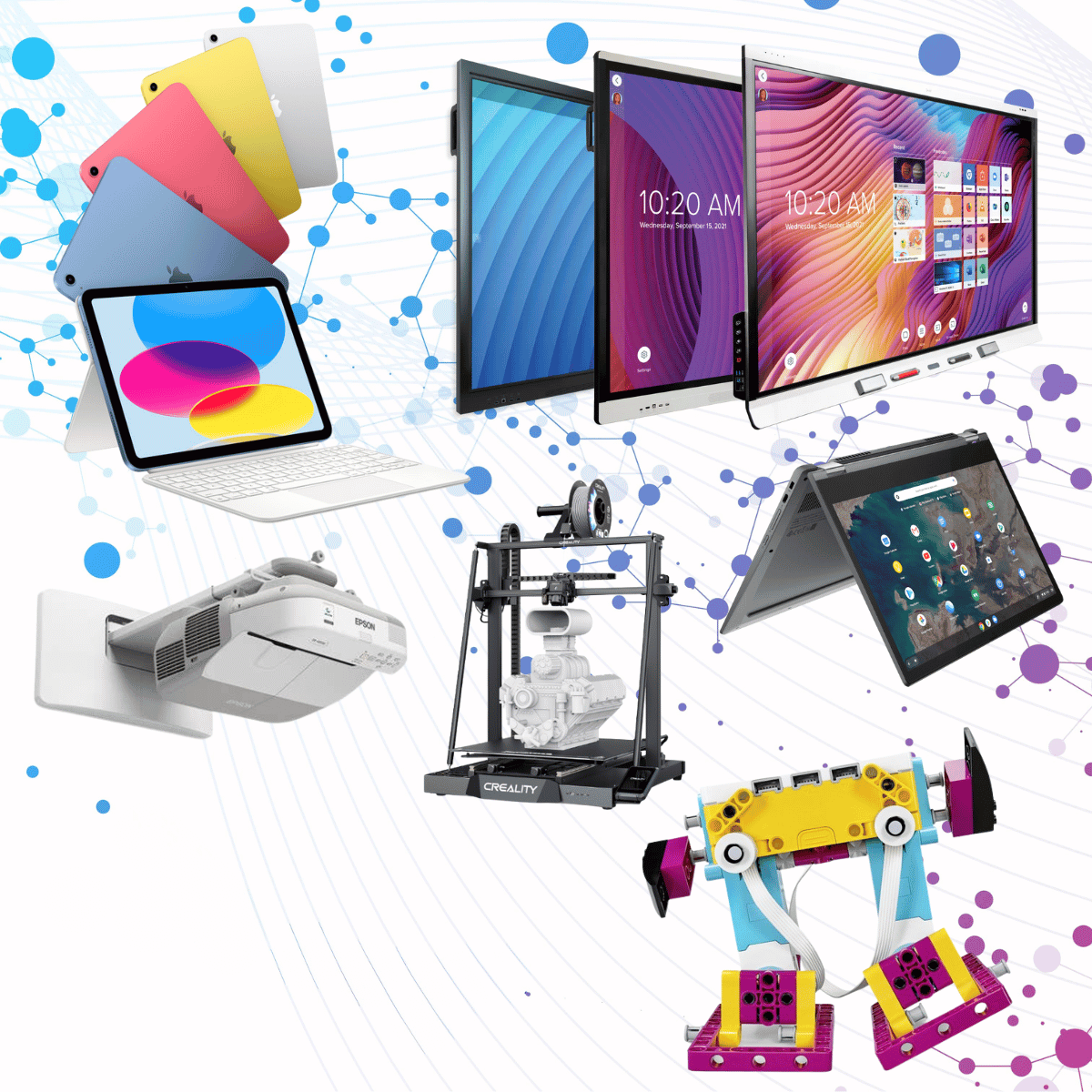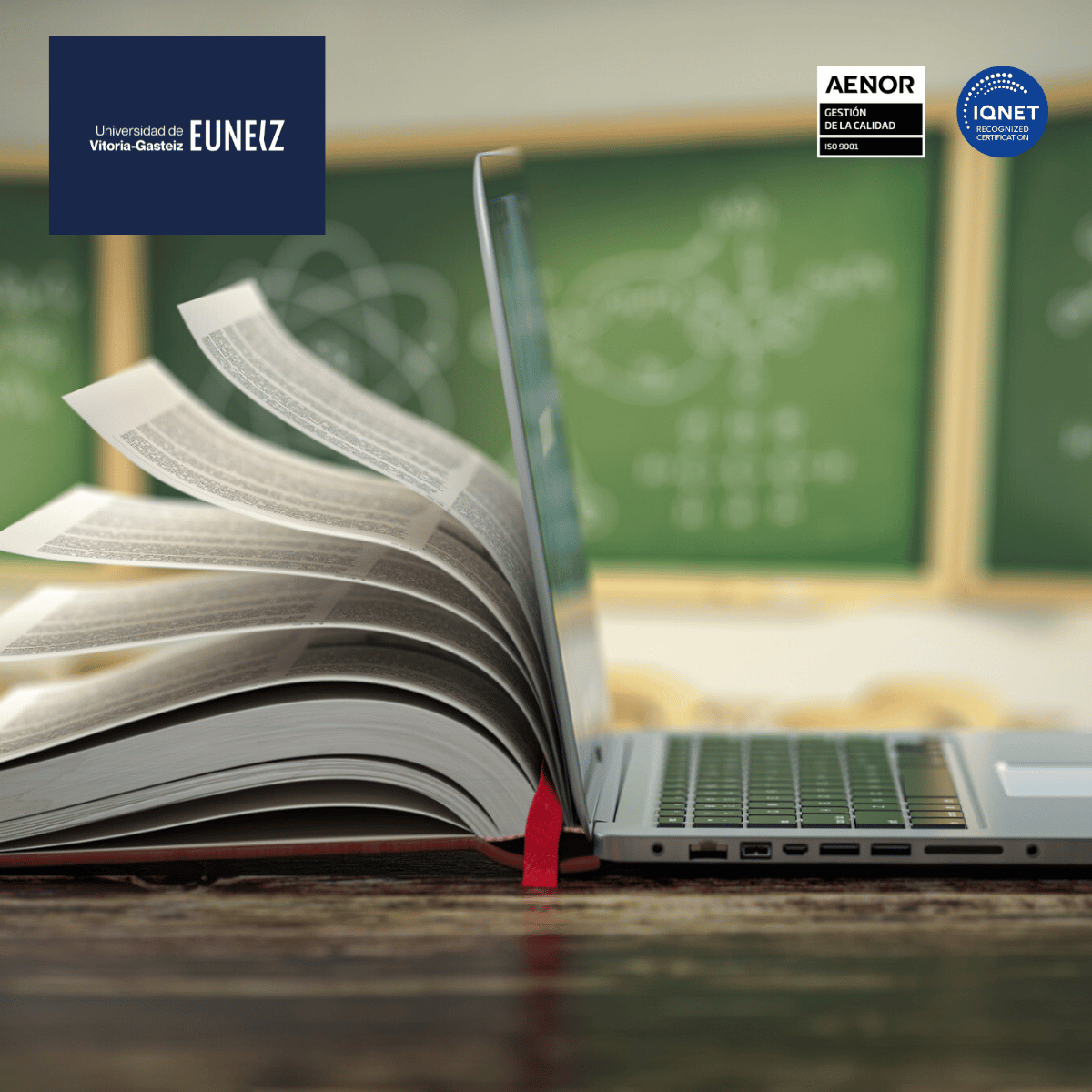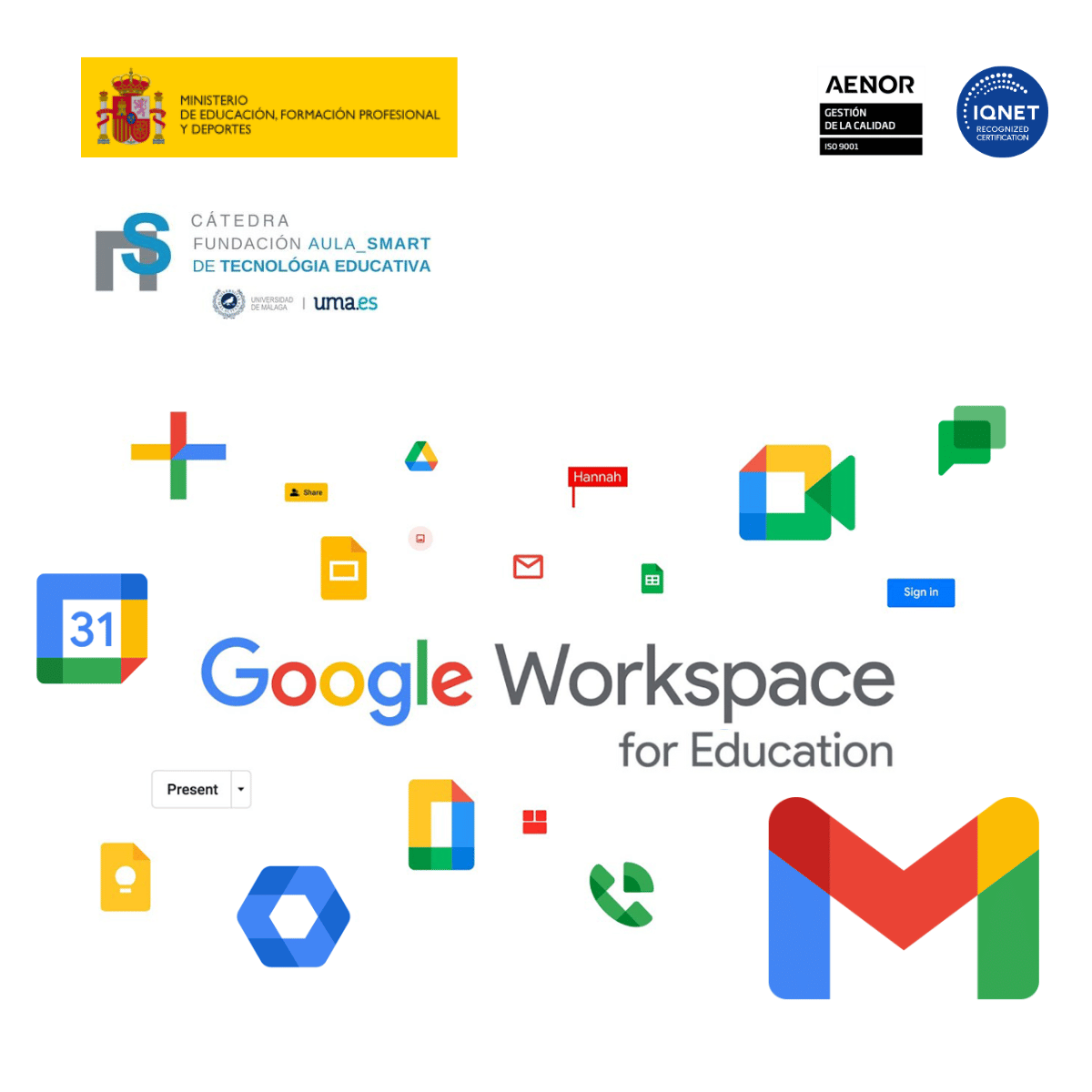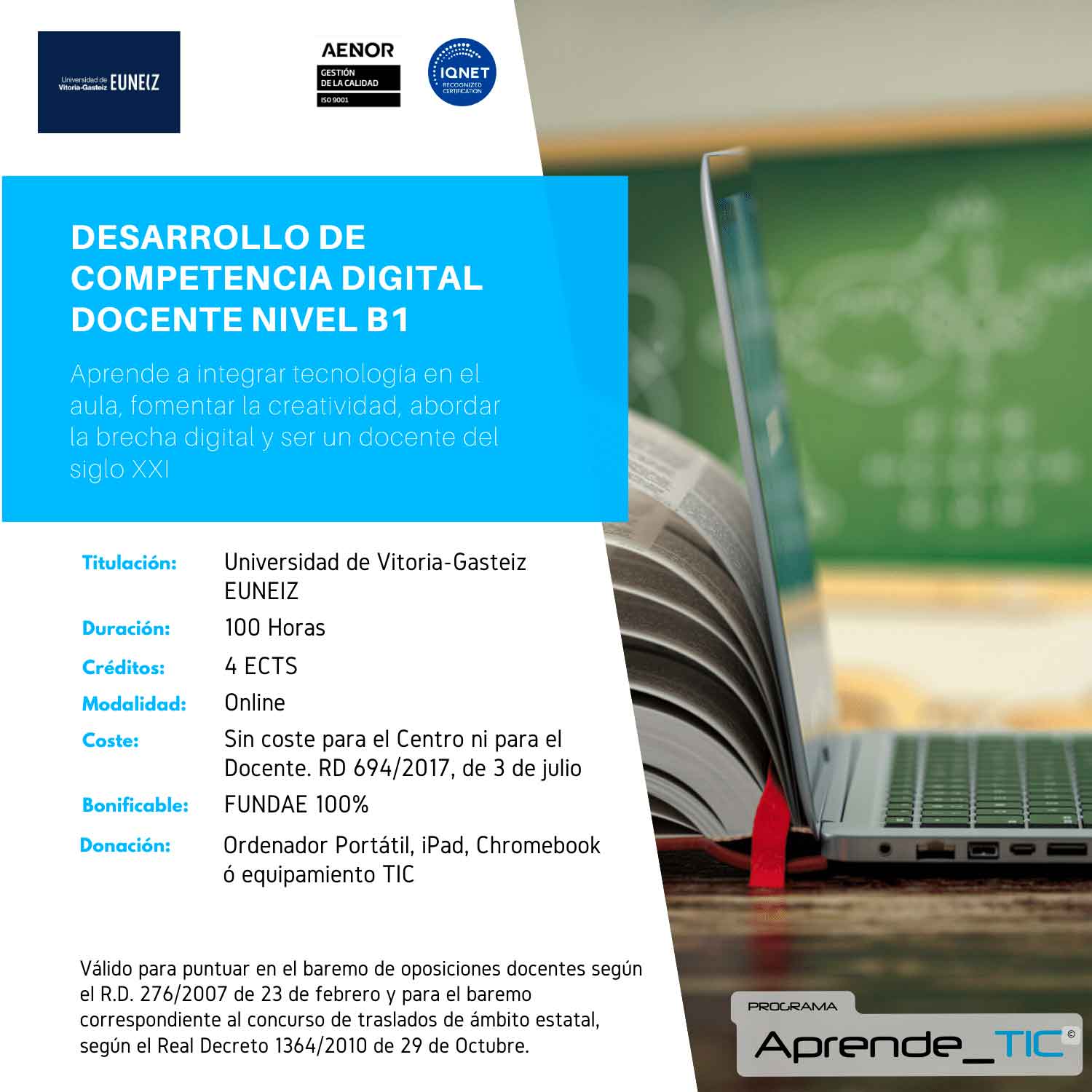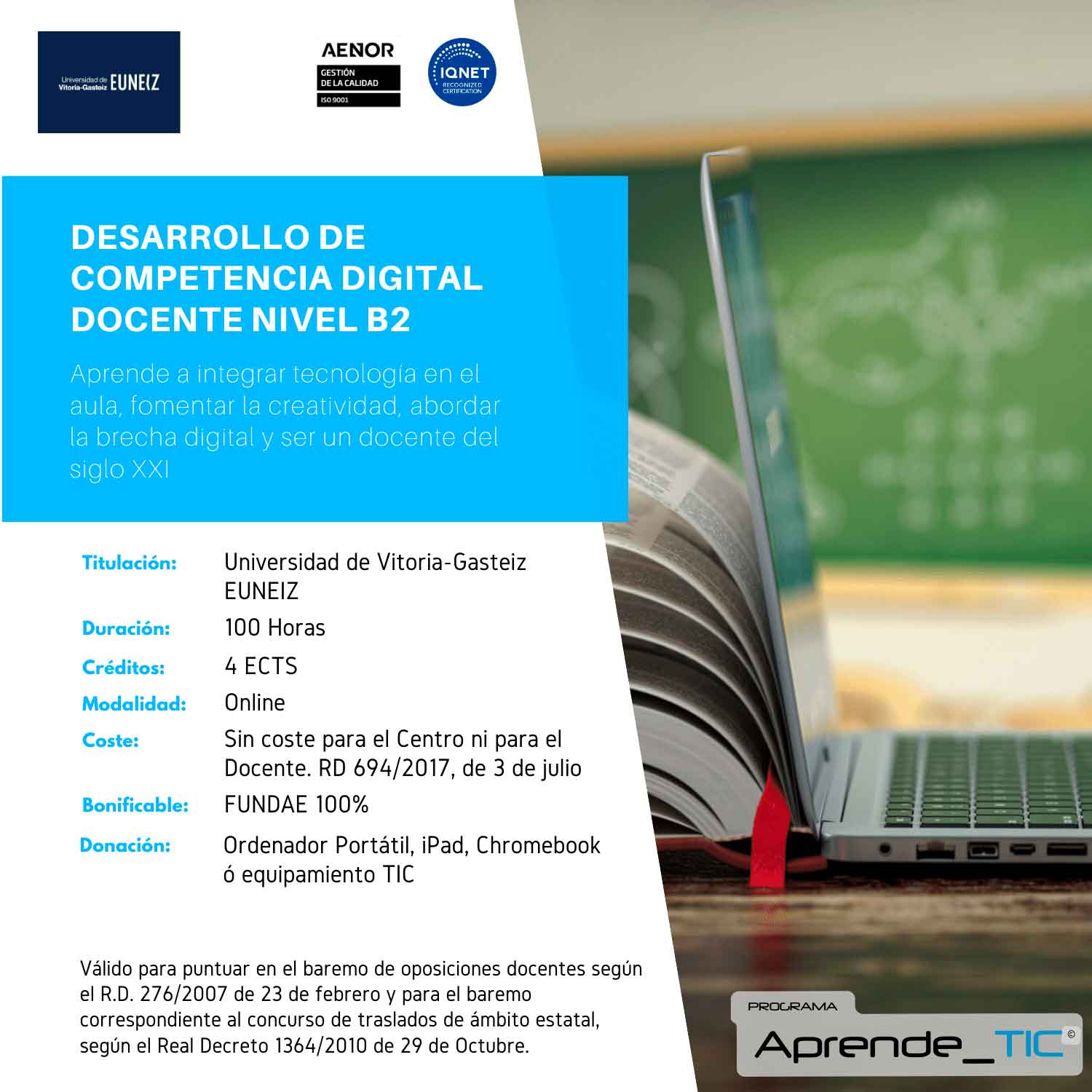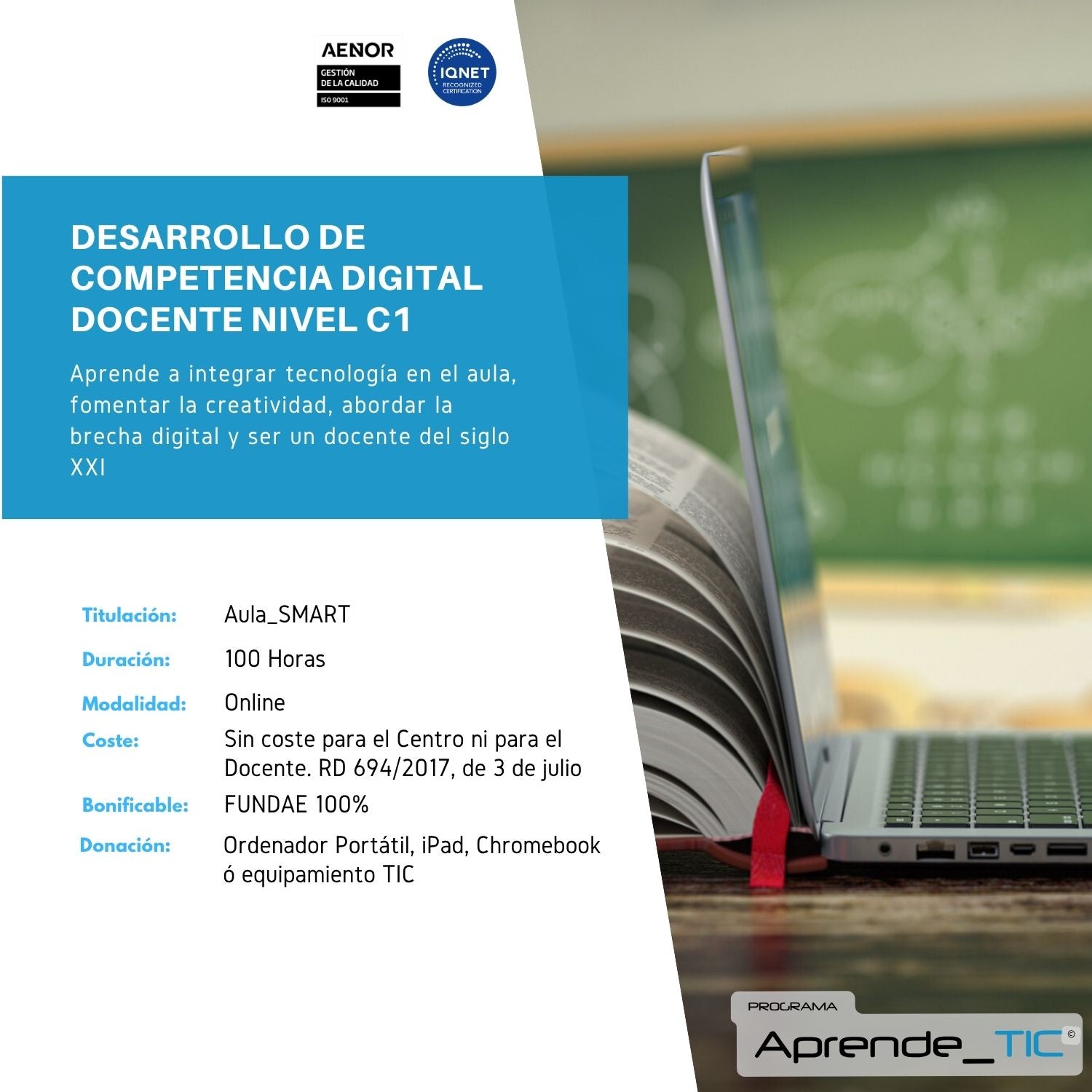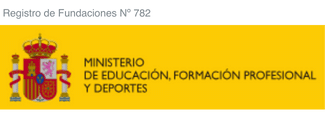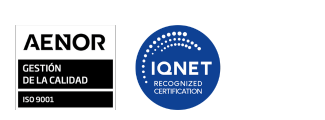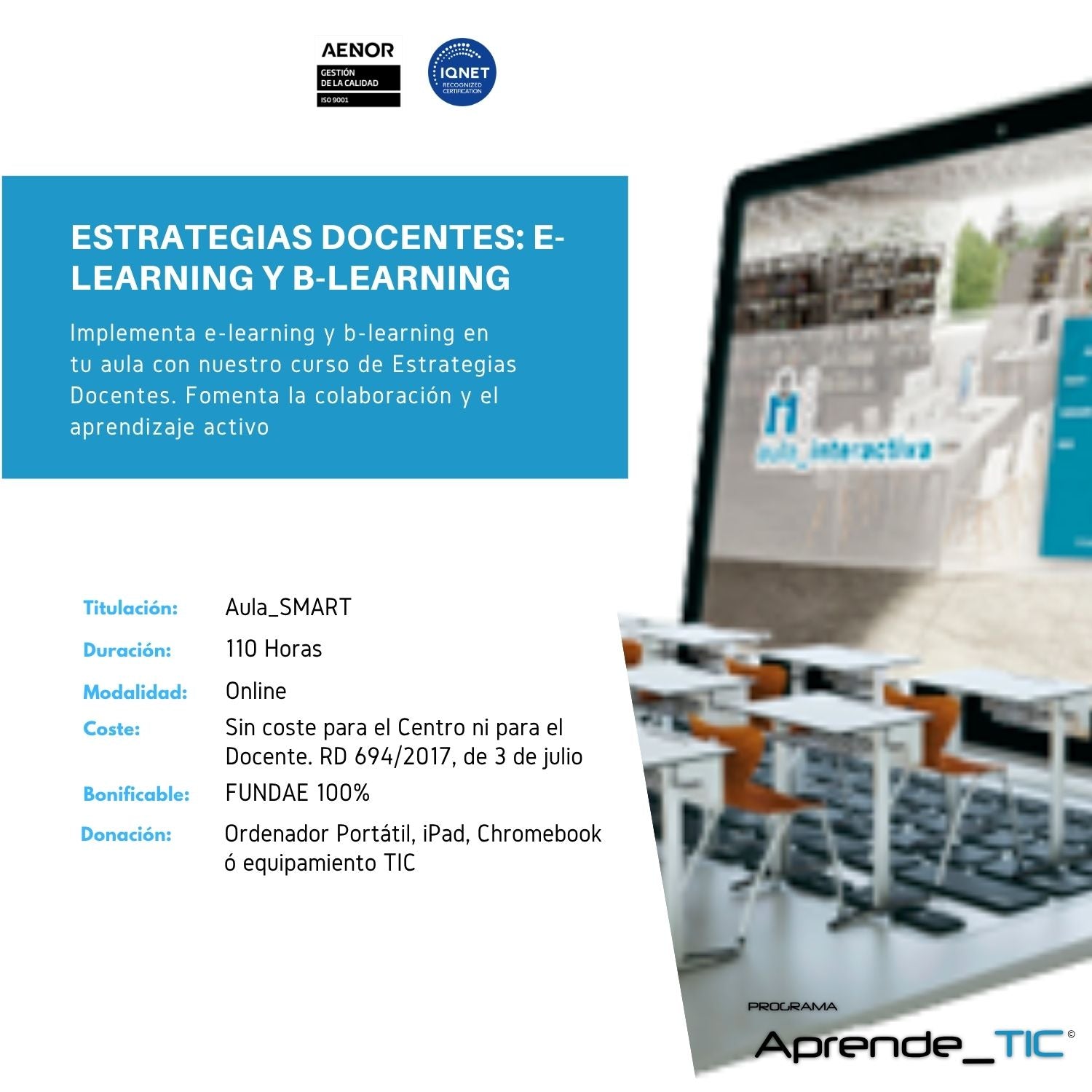
University Specialization Course in:
Teaching strategies: e-learning and b-learning
Revolutionize your teaching with the course "Teaching strategies: e-learning and b-learning"! Learn to design and apply innovative methods of online and semipresencial teaching. Online course, 100% bonus and university degree. Sign up now and receive a free ICT team!
University degree obtained
Date start courses
(*) No cost to the center or the teacher according to RD 694/2017, of July 3.
(**) For students who are not going to take the course through their center

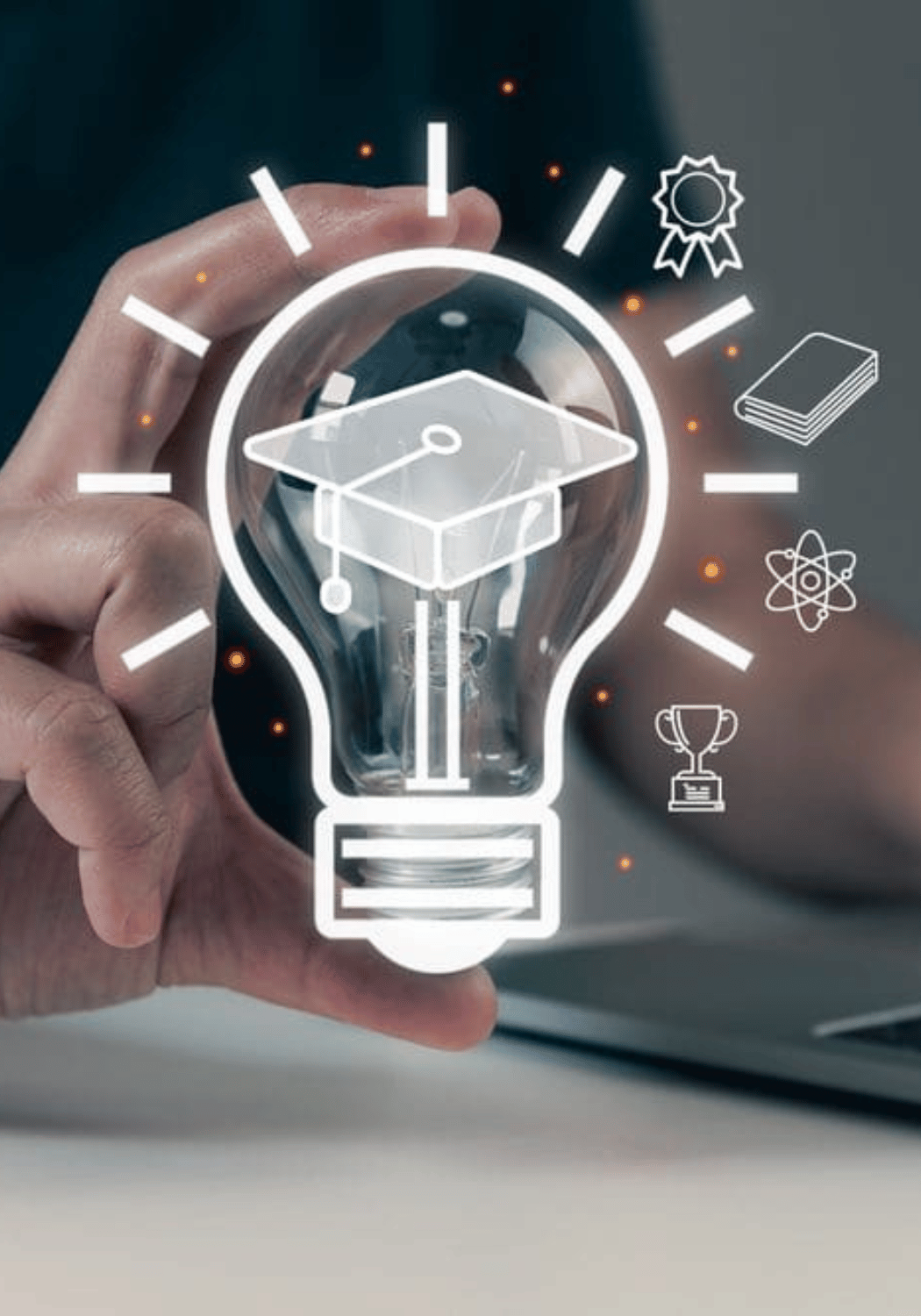
Teaching strategies: e-learning and b-learning
Goals

Teaching strategies: e-learning and b-learning
What prepares you

Teaching strategies: e-learning and b-learning
Who is it addressed

Teaching strategies: e-learning and b-learning
Methodology

Teaching strategies: e-learning and b-learning
Official character
Teaching strategies: e-learning and b-learning
Syllabus
Download the agenda in .pdf format
Topic 1
Topic 2
Topic 3
Topic 4
Topic 5
Topic 6
Topic 7
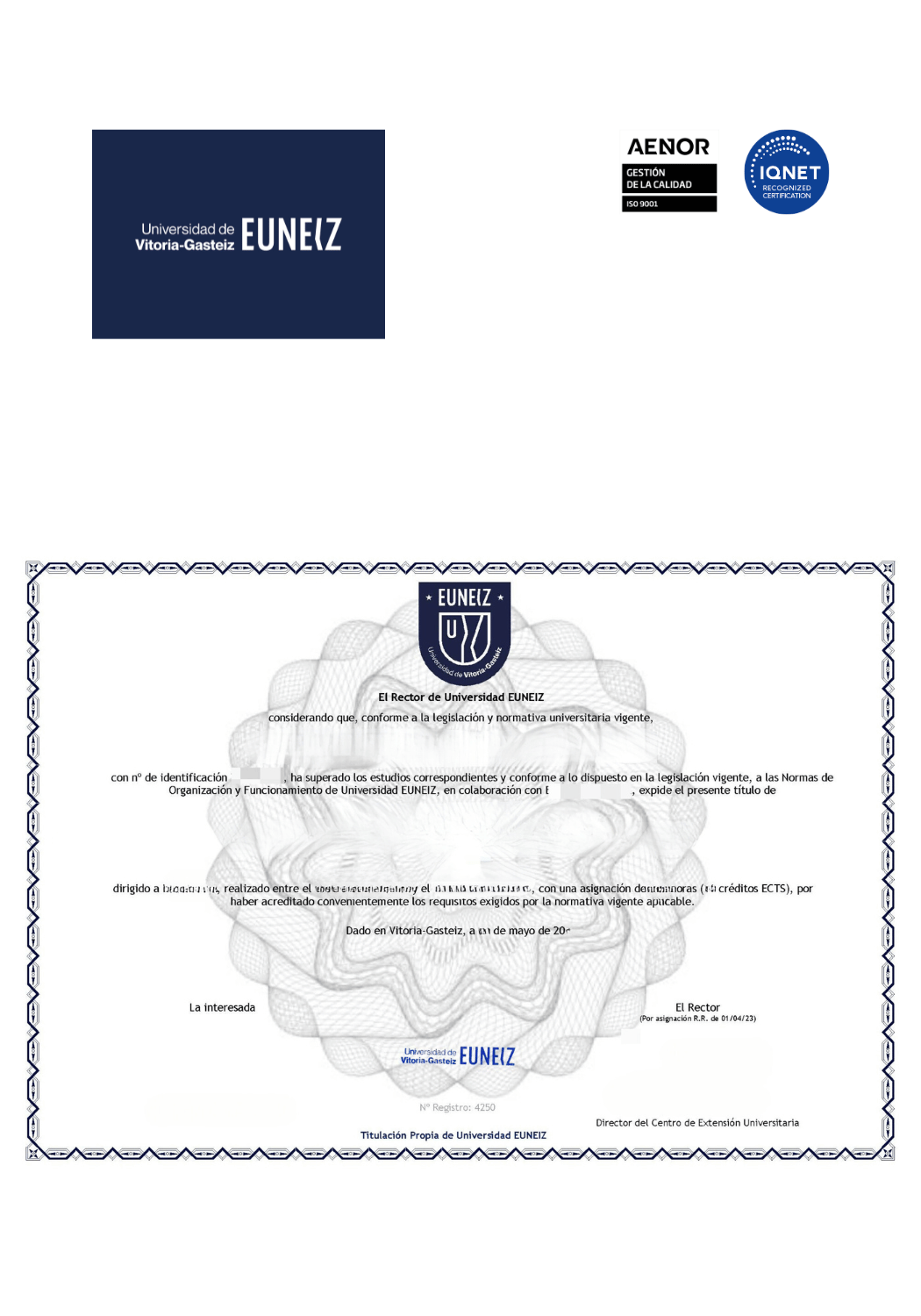
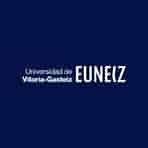
Teaching strategies: e-learning and b-learning
Degree
Teaching strategies: e-learning and b-learning
Do you have any questions about this course?
You can send us your consultation by filling out this form or in the following ways:
- Through the phone (+34) 951 411 800
- Through email
comunicacion@fundacionaulasmart.org
